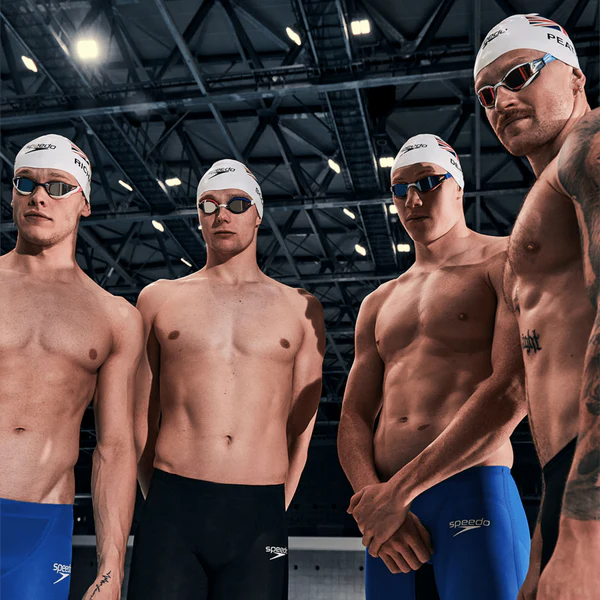Is Swimming a Sport?
Swimming has long been a popular activity enjoyed by many around the world. People flock to pools, lakes, and oceans for various reasons, including recreation and relaxation. However, swimming also holds an esteemed position as a competitive sport. This distinction raises an interesting question: Is swimming truly a sport? To explore this topic thoroughly, it is essential to understand the fundamental aspects of what constitutes a sport. By analyzing the rules, competitions, physical demands, and mental aspects associated with swimming, clarity can emerge regarding its classification.
Defining a Sport
A sport generally has specific characteristics that set it apart from other physical activities. Most importantly, a sport involves organized competition between individuals or teams. Furthermore, it requires physical skill, strategy, and athleticism. For instance, activities like soccer, basketball, and tennis all fit neatly into this definition. They involve structured rules, set goals, and are played competitively on various levels, from amateur leagues to professional tournaments. Therefore, comparing swimming to other recognized sports is crucial.
Swimming fits neatly into this definition. It is organized into competitive events, such as those held in local pools, national championships, and international competitions like the Olympics. Each event has its own set of rules, including distance, stroke types, and starting procedures. Competitors swim against one another to achieve the fastest time. Thus, swimming undoubtedly meets the necessary criteria to be considered a sport.

The Competitive Landscape
The competitive landscape of swimming is vast and varied. From local swim meets to global competitions, countless events showcase incredible athletic skill. Competitions typically take place in both indoor and outdoor environments. These events cater to swimmers of all ages and skill levels. For instance, age group competitions allow young athletes to gain experience. Meanwhile, professional athletes strive for medal-winning performances on the world stage. Additionally, various swim strokes provide further diversity within the sport.
Elite swimming competitions feature freestyle, breaststroke, butterfly, and backstroke events. Each stroke offers unique challenges and requires specific techniques, strengths, and strategies. This diversity presents swimmers with opportunities to specialize. Focusing on a distinct event can lead to excellence. Successful swimmers often choose events that complement their strengths while addressing their weaknesses. Consequently, swimmers develop valuable skills to enhance their performance, enabling them to compete effectively against the best in the sport.
Physical Demands of Swimming
Swimming is an extremely demanding sport that requires peak physical condition. Athletes engage multiple muscle groups simultaneously, promoting overall strength and endurance. Additionally, swimming places significant demand on cardiovascular health. Swimmers must maintain stamina to endure lengthy races while also maneuvering through water efficiently. Thus, the physical requirements of swimming distinguish it from many other activities.
Swimmers spend countless hours training in the water, refining their strokes, starts, and turns. In addition, dry land training, including strength workouts and flexibility routines, enhance their performance. Consequently, specialized training regimens enable swimmers to tackle the various physical challenges associated with competitive swimming. Furthermore, training regimens often adapt throughout the year, depending on competition schedules.
Elite swimmers often train under rigorous conditions. They balance everything from speed workouts to endurance sessions while focusing on technique. Recovery is also a crucial component of training regimens. Adequate rest allows muscles to repair and grow stronger. Nutrition plays a significant role in recovery as well. Swimmers aim to fuel their bodies with the right foods to optimize performance. As a result, dedication and discipline are vital for success in the sport.

Mental Toughness in Swimming
In addition to physical demands, swimming requires substantial mental toughness. The mental aspect of athletic performance often distinguishes successful swimmers from their competitors. For instance, swimmers must possess unwavering focus and concentration. Distractions abound, especially during competitions, yet athletes need to push through. Staying mentally engaged is essential for peak performance.
Visualization techniques often prove effective for many swimmers. Envisioning successful races helps build confidence and reduce anxiety. Many elite athletes use this strategy to prepare mentally before competition. Additionally, goal-setting plays a vital role in enhancing performance. Swimmers regularly set both short-term and long-term goals. Achieving these goals provides motivation and encourages perseverance, especially during challenging training periods.
Moreover, the mental grind experienced during long training sessions can test a swimmer’s resolve. Swimmers must cultivate resilience to overcome setbacks, manage pressure, and stay committed. Developing strategies to cope with anxiety is essential for competitive success. Mental preparation often is as critical as physical training in the world of swimming. Therefore, mental toughness undeniably contributes to athletes’ achievements in this sport.
The Joy of Swimming as a Sport
Beyond the competitive landscape and physical demands, the joy of swimming should not be overlooked. Swimming is unique in offering individual and team competition formats. Some events allow swimmers to race against one another, showcasing their skills. Others foster camaraderie and teamwork through relay races, where athletes combine their efforts to achieve the fastest times. This aspect of swimming encourages social interaction, making it appealing to many individuals.
Participation in swim teams often builds friendships that extend beyond the pool. Lifelong friendships develop among teammates as they work together toward common goals. This sense of community adds another layer of enjoyment to the sport. Many athletes find inspiration in the support they receive from one another, pushing them to perform their best. Furthermore, this shared sense of accomplishment enhances the overall experience for swimmers.
In addition to team experiences, individual milestones offer immense satisfaction. From mastering a specific stroke to achieving personal best times, swimmers celebrate their progress. Individual improvements empower athletes and motivate them to strive for more. As a result, swimming serves as a platform for personal growth and fulfillment. Ultimately, the joy derived from participation plays a significant role in solidifying swimming’s status as a sport.

The Evolution of Swimming as a Sport
Swimming has evolved dramatically as a sport over time. Historical records indicate that swimming dates back thousands of years, with evidence suggesting that ancient civilizations engaged in swimming competitions. Over the years, various stroke techniques have developed, refining the sport’s competitive nature. New swimming styles and innovations continue to emerge, enhancing athletic performance.
With the establishment of formal swimming organizations and competitions, swimming gained credibility as a sport in the late 19th and early 20th centuries. The creation of the International Swimming Federation (FINA) in 1908 marked a significant turning point. FINA began to standardize rules and regulations, which brought greater organization and legitimacy to the sport. This development paved the way for national and international championships, inspiring future generations of swimmers.
Furthermore, advancements in training methods, techniques, and swimwear technology have transformed how athletes approach the sport. Swimmers now benefit from sophisticated coaching techniques, nutrition advice, and refined equipment. These changes continually reshape competitive swimming and elevate performance standards. The evolution of swimming as a sport demonstrates its adaptability and ongoing pursuit of excellence.
The Global Impact of Swimming as a Sport
Swimming’s status as a beloved sport is evident across the globe. World-class swimming events draw massive audiences and inspire millions. The Olympics, in particular, showcase swimming on an international stage, generating enthusiasm for the sport. Iconic athletes emerge through their performances, capturing the attention of fans while serving as role models for aspiring swimmers.
Swimming’s global impact extends beyond competitive success. Swim programs often address public health concerns as well, promoting awareness of water safety and fitness. Teaching children to swim equips them with crucial life skills. It fosters a love for physical activity and helps establish healthy habits. Accessible community swim programs further encourage participation at all levels, fostering inclusivity.
Moreover, swimming transcends boundaries, uniting people from diverse backgrounds. Competitive meets often draw swimmers of varying ages, genders, and nationalities together. This rich tapestry fosters a sense of belonging in a sport that values hard work and dedication. The global nature of swimming as a sport motivates athletes to strive for excellence while forming lasting connections with fellow competitors.

Conclusion: Embracing Swimming as a Sport
In conclusion, swimming undoubtedly qualifies as a sport due to its organizational structure, competitive nature, physical demands, and mental aspects. It boasts a rich history, evolving over centuries to achieve its current status. Furthermore, the joy, camaraderie, and personal growth experienced in swimming contribute to its appeal as a sport. The global impact of swimming highlights its significance, bridging communities and inspiring countless individuals. As the world watches swimmers compete, it is clear that swimming deserves its place among the world’s premier sports.
Engaging in swimming creates lifelong memories, personal achievements, and connections. These factors cement its status as a cherished sport and beloved activity. Whether competing professionally or enjoying recreational swims, swimming offers something for everyone. The myriad benefits of swimming extend far beyond the pool, guaranteeing that this timeless activity continues to inspire future generations. Embracing swimming as a sport ensures its legacy remains vibrant for years to come.


